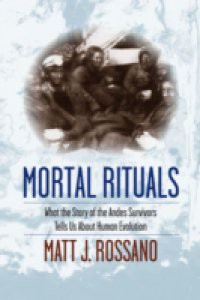On December 21, 1972, sixteen young survivors of Uruguayan Air Force Flight 571 were rescued after spending ten weeks stranded at the crash site of their plane, high in the remote Andes Mountains. The incident made international headlines and spawned several bestselling books, fueled partially by the fact that the young men had resorted to cannibalism to survive. Matt Rossano examines this story from an evolutionary perspective, weaving together findings and ideas from anthropology, psychology, religion, and cognitive science. He ties their story to our story, seeing in the mortal rituals of this ten-week struggle a reflection of the very essence of what it means to be human.During their ordeal, the Andes survivors (re)created a primitive yet complex social system embodying the efficiency and flexibility necessary to meet the challenges of a harsh environment. They broke civilized taboos to fend off starvation and abandoned civilized modes of thinking to maintain social unity and personal sanity. These young men established daily routines and rituals that perpetuated their survival while sustaining their morale. Finally, through the power of ritual, they accessed the minds ability to endure severe emotional and physical hardship. All of these essential strategies have deep evolutionary histories. They are what our ancestors did for millennia upon millennia in their struggle to survive.

